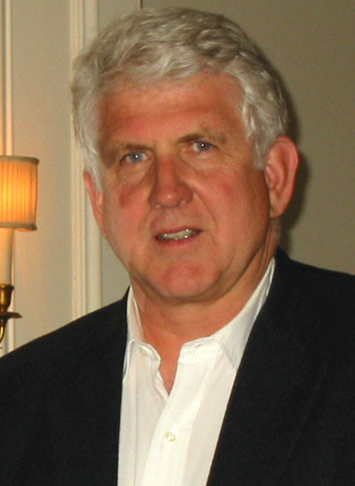Computing networking pioneer Metcalfe wins top industry prize
Computing networking pioneer Bob Metcalfe on Wednesday won the industry's most prestigious prize for the invention of the Ethernet, a technology that half a century after its creation remains the foundation of the internet. The Ethernet is the standard connection for everything from servers inside data centers to telecommunications networks.

Computing networking pioneer Bob Metcalfe on Wednesday won the industry's most prestigious prize for the invention of the Ethernet, a technology that half a century after its creation remains the foundation of the internet.
The Ethernet is the standard connection for everything from servers inside data centers to telecommunications networks. The Association for Computing Machinery credited Metcalfe, 76, with the Ethernet's "invention, standardization, and commercialization" in conferring its 2022 Turing Award, known as the Nobel prize of computing. It comes with a $1 million prize thanks to backing from Alphabet Inc's Google.
The Ethernet got its start when Metcalfe, who later went on to co-found computing network equipment maker 3Com, was asked to hook up the office printer. In the early 1970s, he worked at Xerox's Palo Alto Research Center, which had invented the personal computer and also a laser printer. Metcalfe sketched out a networking approach that would excel at connecting them together in way that could expand smoothly as the number of computers in the network rose - which helped pave the way for the internet.
Metcalfe, who graduated from the Massachusetts Institute of Technology in 1969 and earned a doctorate in computer science from Harvard in 1973, told Reuters in an interview that there is still much research to be done in connecting computers, especially in artificial intelligence. Metcalfe said previous generations of AI "died on the vine because of a lack of data." That is no longer a problem thanks to the billion-plus people generating data by using the internet, but the challenge now is to better connect the computers that process that data through artificial neural networks.
Those networks loosely approximate the human brain, except that in a human brain, neurons have more than 10,000 connections each, while their artificial counterparts have far fewer. "You can either increase the compute power of the neurons, or you can connect them better. And the brain teaches us that connecting them is where it's at," Metcalfe said.
The vast room for improvement in connecting neural networks "is cause for optimism on the future of AI, which I think will continue scaling," he added.
(This story has not been edited by Devdiscourse staff and is auto-generated from a syndicated feed.)










